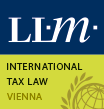Alexander Rust
Born in 1973. He studied law with a specialization in tax law in Freiburg (Breisgau), Geneva, Munich, and New York City. In 2008/2009, he was appointed acting assistant professor at New York University and in 2010 professor of tax law and director of the Master Program in European and International Taxation at the University of Luxembourg. Since 2014, he is professor of tax law at WU. His PhD thesis on the compatibility of CFC legislation with tax treaty and EC law won the European Academic Tax Thesis Award. Alexander Rust is specialized in international tax law as well as European tax law. He is a frequent speaker and lecturer all around the world.Courses:
Income from Employment
Articles 15 – 19 OECD Model Convention constitute the fundamental distributive rules for income from employment. The course will focus on the tax treatment of cross-border workers, on civil servants and on the taxation of pensions. It will analyze the different provisions contained in the OECD MC and in the UN MC as well as the alternative provisions common in treaty practice. A special emphasis is put on the jurisprudence of the major tax jurisdiction. In the course, the students will solve several case studies and will be advised on tax planning opportunities.
Tax Treaties – Case Studies and Specific Interpretation Issues
Tax treaties are very important tools in international tax planning. Parallel to the increase of cross-border transactions, more and more questions about the interpretation of specific tax treaty provisions are being raised. When attending this course, students will already have dealt with principles of tax treaty law and with many more issues of international tax law. With that knowledge in mind, they will deal with even more sophisticated issues of international tax law that play an important role in international tax planning.
GloBE: Pillar 2 – Concepts and Practical Implications
The OECD proposed the introduction of a Global Minimum Tax. Profits will be taxed at a minimum rate of 15% around the world. The EU enacted a directive implementing these proposals in 2022. Many countries have already introduced the Global Minimum Tax. The GLOBE rules consist of an Income Inclusion Rule and an Undertaxed Payments Rule. Corporate profits taxed a rate below 15% will be subject to a top-up tax. The goal of these rules is to reduce harmful tax competition. The lecture will deal with the scope of the IIR and UTPR, the technical details of those rules, the mechanisms to avoid double taxation, the dispute resolution rules and the practical implications for multinational enterprises. We will also analyze whether the measures achieve their goal or whether multinational enterprises can still reduce their tax liability by shift profits to low-tax jurisdictions.
Non-Discrimination
Article 24 OECD Model Convention is a fundamental provision in every tax treaty. It contains several criteria which may not be taken as a basis for discrimination. A contracting state may not discriminate against foreign nationals, against permanent establishments of non-resident taxpayers, against payments made to non-resident enterprises, or against resident enterprises which are controlled by foreign enterprises. This course analyzes the concepts and implications of each non-discrimination clause, the interdependences of the non-discrimination clauses among themselves, and the interactions with distributive rules.
Back to list

